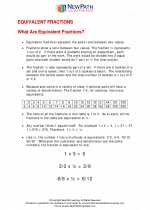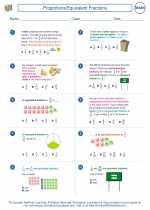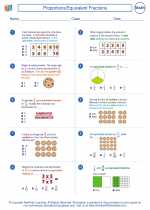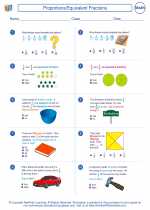Irrational Numbers Study Guide
An irrational number is a real number that cannot be expressed as a simple fraction. In other words, it cannot be written as a fraction p/q where p and q are integers, and q is not equal to zero.
Characteristics of Irrational Numbers:
- Cannot be expressed as a simple fraction
- Have an infinite, non-repeating decimal expansion
- Exist on the number line as non-terminating and non-repeating decimals
Examples of Irrational Numbers:
Some common examples of irrational numbers include:
- π (pi) = 3.14159265359...
- e (Euler's number) = 2.71828182845...
- √2 (square root of 2) = 1.41421356237...
Identifying Irrational Numbers:
To determine if a number is irrational, you can use the following methods:
- Prime Factorization: If the square root of a number does not simplify to an integer, then the number is irrational. For example, the square root of 5 (√5) cannot be simplified to an integer, so 5 is irrational.
- Decimal Expansion: If a number has a non-repeating and non-terminating decimal expansion, then it is irrational. For example, the decimal expansion of π is non-repeating and non-terminating, making it irrational.
Operations with Irrational Numbers:
When performing operations with irrational numbers, the result can also be irrational. For example, adding or multiplying two irrational numbers may result in another irrational number.
Real-Life Examples:
Irrational numbers are encountered in various real-life situations, such as calculating the circumference of a circle, solving certain mathematical equations, and understanding patterns in nature.
Study Tips:
When studying irrational numbers, it's helpful to:
- Practice identifying irrational numbers using prime factorization and decimal expansion methods
- Explore real-life examples of irrational numbers to understand their significance
- Work on solving problems involving irrational numbers to improve your understanding
Remember, irrational numbers are an important concept in mathematics and have fascinating properties that make them worth exploring!
.◂Math Worksheets and Study Guides Sixth Grade. Proportions/Equivalent Fractions

 Worksheet/Answer key
Worksheet/Answer key
 Worksheet/Answer key
Worksheet/Answer key
 Worksheet/Answer key
Worksheet/Answer key
